توضیحات
Implications of Impairment Decisions and Assets’ Cash-Flow Horizons for Conservatism Researc
مقاله انگلیسی حسابداری محافظه کاری
پیامدهای تصمیمات کاهش ارزش و افق وجوه نقدی دارایی برای تحقیقات محافظه کاری
Rajiv D. Banker
Sudipta Basu
Dmitri Byzalov
Temple University
THE ACCOUNTING REVIEW
Vol. 92, No. 2
March 2017
pp. 41–۶۷
American Accounting Association
DOI: 10.2308/accr-51524
ABSTRACT:
Accountants examine multiple indicators when assessing whether individual assets are impaired.
Different indicators predict cash flows over varying time horizons,
and their importance varies with how far into the future individual assets are expected to generate cash flows.
We predict that earnings exhibits asymmetric timeliness with respect to multiple indicators, including stock return,
sales change, and operating cash flow change, which differentially explain write-downs of current assets,
long-lived tangible assets, and indefinite-lived goodwill. Wepredict an interaction effect between indicators,
such that the total impact of several consistent indicators is greater than the sum of their individual impacts.
Empirical estimates for U.S. firms are consistent with our predictions and yield new insights about the effects of multiple indicators for both conservatism and impairment research.
Our multiindicator asymmetric models also change inferences about the relative explanatory power of economic factors versus reporting incentives in asset impairments.
Keywords:
timely loss recognition;
asset write-downs;
bookable gains
and losses.
I. INTRODUCTION
We study how accountants use data about future cash flows in their impairment decisions.
Prior research shows that bad news is recognized in earnings more quickly than good news,
and infers the presence of conditional conservatism from this finding (Basu 1997; Watts 2003b). Appealing to market efficiency,
this research typically uses stock return as a proxy for news about future cash flows,
and interprets the piecewise-linear effect of stock return on earnings as a measure of more timely loss recognition by firms.
We examine recent U.S. impairment accounting standards (Financial Accounting Standards Board [FASB] 1995, 2001a, 2001b,
Statements of Financial Accounting Standards [SFAS] 121, 142, and 144, respectively) and develop new insights and expanded empirical models for both conservatism and impairment research.
مقاله انگلیسی حسابداری محافظه کاری
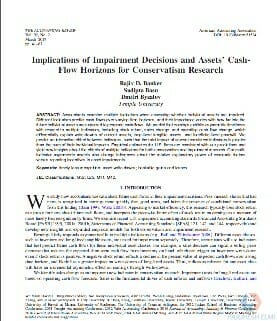
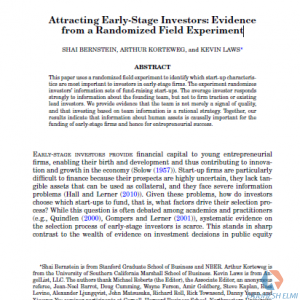
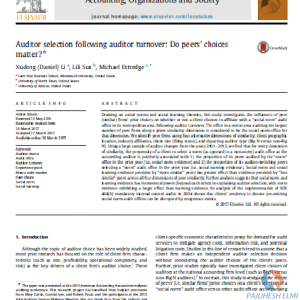

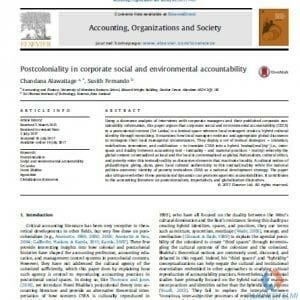
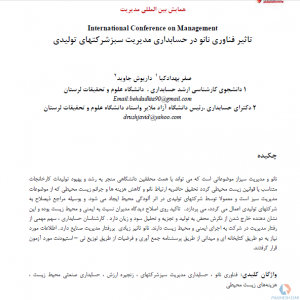
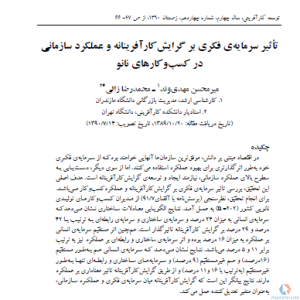
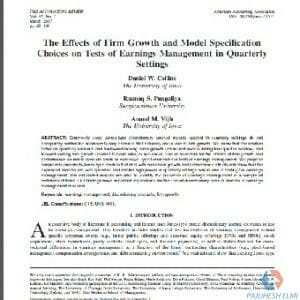
نقد و بررسیها
هیچ دیدگاهی برای این محصول نوشته نشده است.